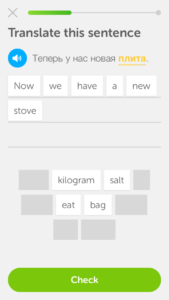Sanitation SVU. That’s the web series I should star in.
At one point last week I had live typhoid vaccine in my fridge and other people’s garbage downstairs inside my door. These are perversely related in the sense that when I touched the anonymous garbage bags (don’t judge; I regret my actions and I undertook them only because I’ve been primed–by trash citations/random assorted trash bags appearing in front of our apartment on days that are decidedly NOT trash day–to panic and lose my sense of reason when I see stranger garbage)…anyway, when I picked up the anonymous garbage bags to take them inside, because I DON’T WANT A TRASH CITATION, some kind of liquid slime got on my hands.
I’m 80% sure it was pee.
So it wasn’t the worst thing in the world that I had just started taking the typhoid pills, even if only for metaphorical comfort.
Actually getting the typhoid vaccine was something of a trial. Even though I had a routine physical only a month ago, the doctor’s office wouldn’t write me a prescription for the typhoid pills without me coming in so they could “make sure I was healthy.” The doctor’s office is down the street. I’m there probably too frequently. So I went and sat in the waiting room for an hour, then had a two-minute appointment in which I wasn’t asked a medical question beyond “What are you here for today?”
Anyway. I understand liability. Fine.
But then I went to pick up the typhoid prescription and discovered that they had called in a typhoid SHOT, which the Duane Reade pharmacy definitely does not dispense, rather than the pills.
Try again. Call the doctor the next day…get the expected “she’ll be back in on Monday and can resend the correct prescription then” but fortunately am talking to an extremely reasonable man who, when I tell him I need to start the series of pills that day in order to finish them in time for travel, has someone else call the correct scrip in.
I go to pick the prescription up, armed with my 42% off coupon that I found on the internet.
Oh, says the (very kind and very competent) pharmacist who I had seen the previous day, it seems your doctor called in the prescription…to the Duane Reade down the street.
Close enough!
The Duane Reade down the street only gave me 20% off but let’s call it a win.
Back to trash:
The store downstairs is very delightful and its owner and I have worked through many small absurdities of renting/apartment living/things breaking together. I know they have security cameras so I ask him for the footage from the night before. I am KEEN to catch the perpetrator of garbage.
He sends me the clips; for some reason, there’s background music to all of them. One definitely shows a woman running up to the (perfectly acceptable) pile of trash in front of the store on the other side–which enjoys commercial trash removal–and depositing her bag there. Later clips, in the middle of the night, show a bag being lifted by the wind and blown down from the store to our curb (this bag was really lightweight…probably because it may have contained ONLY PEE). A third clip shows it blowing around some more until a guy walks by and kicks it squarely onto our sidewalk (fair play to him, as I assume he was just trying to put it in its rightful location).
On Sunday night I went downstairs, 85% vaccinated against typhoid, and kicked the offending bags to the curb, literally. No citation. But now I know that if I ever want to make a short film, all I need to do is go to the front of my apartment and dance for the camera. Someone will add background music later.





